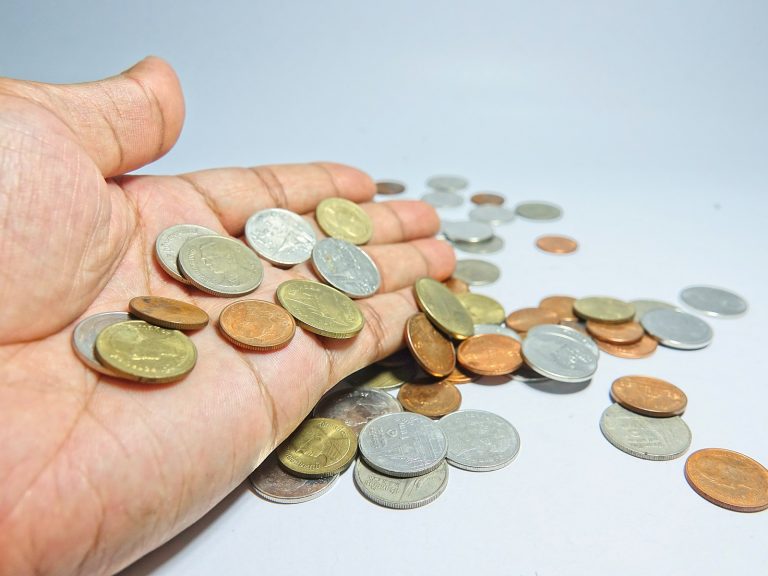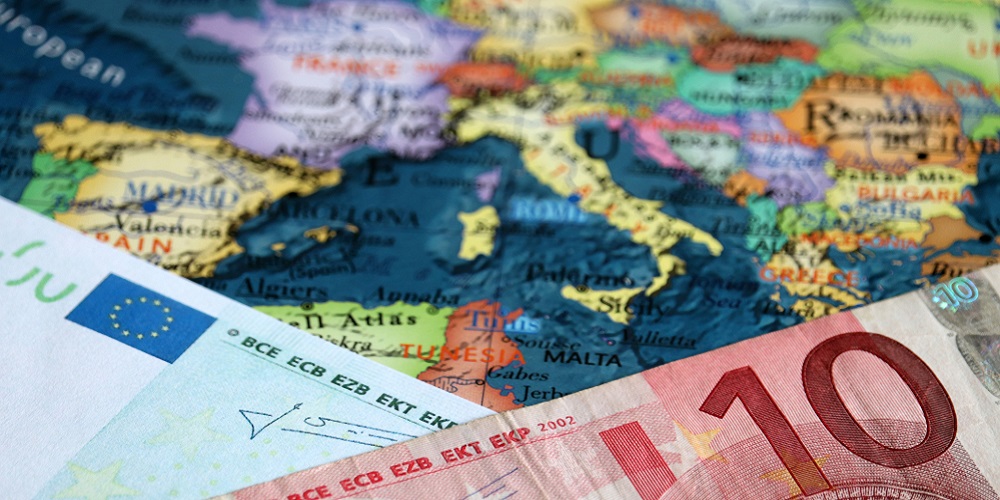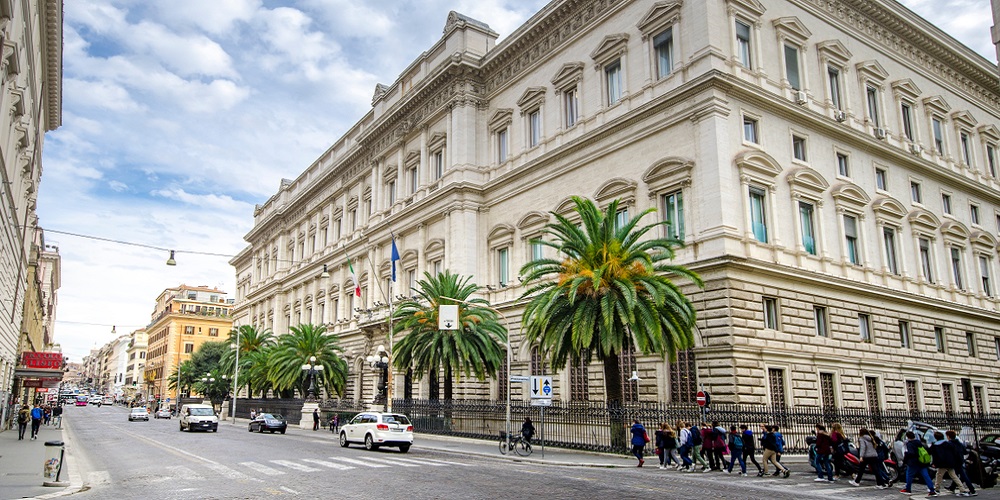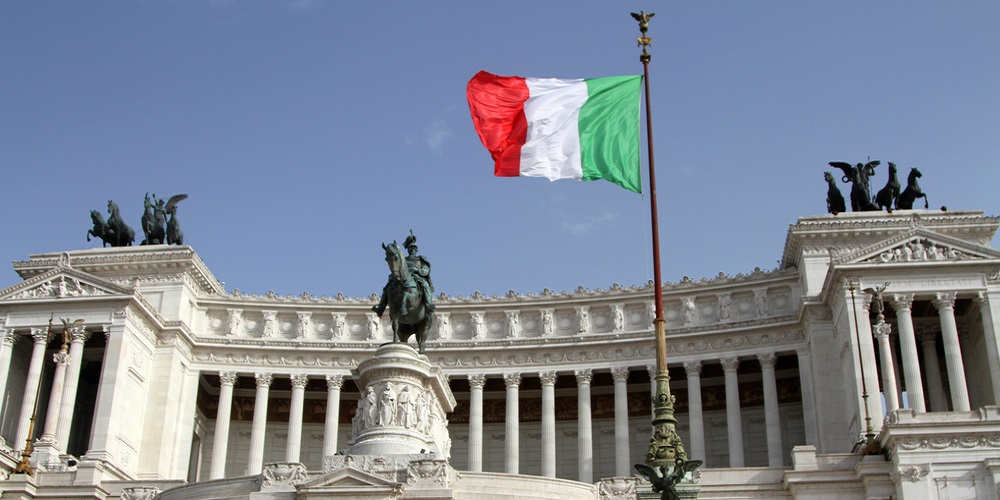BCH Can Be the Global Coin for Daily Spending, Says Italian Crypto Executive
Publikováno: 23.6.2019
 Italy has had its share of economic problems in the past decade and a growing number of its citizens blame the euro for their country’s misfortunes. Italians, many of whom still prefer to use cash, are now turning their attention to cryptocurrencies such as BCH. Federico Pecoraro, the CEO of Chainblock, one of the first […]
Italy has had its share of economic problems in the past decade and a growing number of its citizens blame the euro for their country’s misfortunes. Italians, many of whom still prefer to use cash, are now turning their attention to cryptocurrencies such as BCH. Federico Pecoraro, the CEO of Chainblock, one of the first […]
The post BCH Can Be the Global Coin for Daily Spending, Says Italian Crypto Executive appeared first on Bitcoin News.

Italy has had its share of economic problems in the past decade and a growing number of its citizens blame the euro for their country’s misfortunes. Italians, many of whom still prefer to use cash, are now turning their attention to cryptocurrencies such as BCH. Federico Pecoraro, the CEO of Chainblock, one of the first crypto companies in the country, thinks it’s the right time to enable more people and businesses to benefit from using decentralized money. He considers bitcoin cash a good candidate to become the world’s digital coin for daily spending.
Also read: These Websites Help You Shop With Major Retailers Using Cryptocurrency
Rome’s Troubles Create Conditions for Cryptocurrency Adoption
Italy is an interesting case in Europe. In certain aspects, the country is part of EU’s Southern Flank, a region facing serious economic and financial challenges in the past 10 years. On the other hand, it’s one of the world’s largest economies. And just like the rest of the continent, it has its own North-South disproportions in terms of industrialization and level of economic development. As a whole, Italy remains one of the most advanced economies, it’s the third-largest in the Eurozone and the eighth in the world by nominal GDP. It is also one of the largest exporters on the planet, including of high value added products.

The Italian economy took a hard hit from the 2008 financial crisis. The country’s problems were exacerbated by its huge public debt accumulated due to excessive spending by the government in Rome during the previous couple of decades. Since then, Italy has managed to catch up with the average Eurozone growth indicators. However, many ordinary Italians, over a third of whom live in poverty or risk of social exclusion, blame the adoption of the euro for the loss of economic power. Critics say Europe’s common fiat currency has been tailored to the interests of others further north.
In these circumstances, cryptocurrencies are gradually winning hearts and minds in Italy. Despite the ups and downs, the long-term trend in the economy built around decentralized digital assets has been mostly positive. Crypto winter, which seems to have passed already, has been a tough time for almost any company involved in cryptocurrencies, according to Federico Pecoraro, CEO of Chainblock. There has been an overall decrease in transactions in the Italian crypto sector during last year. “Media coverage has been quieter after March 2018 too,” the entrepreneur told news.Bitcoin.com.
Leading Italian Crypto Company Launches New Services
Chainblock is a well-established crypto company which started in 2013 as the first Bitcoin ATM operator in Italy. It has recently expanded its portfolio and now operates Chainblock Buy, a hybrid exchange for buying, trading and selling cryptocurrencies, Chainblock Buy With Cards which is a service for people who want to buy coins with debit and credit cards, and Chainblock Pay, a solution for merchants that want to accept crypto payments. The latter already has a prominent client – Vapor Art, which is the largest supplier of e-cigarettes in Italy. Pecoraro explained:
We love small businesses that want to accept crypto payments but we want to enable as many merchants as we can with a strategic market approach. Our goal is to provide affordable and scalable solutions for both big and small shops and spread real cryptocurrency mass adoption. We plan to enable 5,000 merchants to accept Bitcoin payments.
Pecoraro pointed out that Chainblock Buy With Cards and Chainblock Pay are the company’s latest products that were launched in 2019, while Chainblock Buy has been online since last year. At the same time, the company remains a market leader with its core ATM business – people can use its teller machines to purchase digital coins with fiat cash. “Our mission is to allow anyone to easily buy and spend cryptocurrencies, and we proudly support Bitcoin Cash from its beginning,” emphasized the company’s chief executive.
Like other crypto businesses with strong foundations, Chainblock has used the “winter months” in the industry to develop new products in order to expand its customer base. It also installed six new ATMs in 2018, including one device in a large shopping mall visited by over 8 million customers annually. “At the end of 2018, we had a 156% increase in transactions and a 144% increase in new users,” Federico Pecoraro revealed. He believes Italy has what it takes to become the starting point of an economic revolution that embraces cryptocurrencies and says this could happen sooner than people might think. That’s why, during a meeting with representatives of Banca d’Italia, the country’s central bank, his team proposed the conversion of some of the nation’s gold reserves into bitcoin. Italy actually has the third biggest gold reserve in the world, the businessman noted.

Pecoraro further elaborated that while bitcoin core (BTC) may have the role of a store-of-value currency at the moment, bitcoin cash (BCH) could be the cryptocurrency that would fit perfectly as a real global coin for daily spending. “We’re proud to support it on our products. Indeed, our clients have the opportunity to buy BCH through any of our services,” he stressed. The entrepreneur also shared details about the profile of his company’s customers. Most often, young clients buy online while older customers generally prefer to purchase digital assets from ATMs with cash.
“Italian people still use a lot of cash, and we give them an easy way to convert it into their favorite cryptocurrencies. The average Chainblock Buy user is a male aged 24-35 who wants to invest some money in cryptocurrencies, while the average Chainblock ATM user is rather a curious person exploring cryptocurrencies for the first time,” said Federico Pecoraro. “Our ATMs guarantee a unique experience through which people can understand how easy it is to buy bitcoin cash and bitcoin core.”
Italy is home to large diasporas from Eastern Europe, Africa, the Mediterranean region, and Pecoraro acknowledged that immigrants and guest workers were among Chainblock’s first clients. “In fact, cryptocurrencies are still the best way to send money worldwide, a cheap and fast way, especially in countries where there is no strong banking system. At the same time, due to strict KYC/AML policies, sending coins is not as easy as it was years ago and this could be a barrier for first-time users. We try anyway to do our best and we also expect to work soon on specific remittance products and services,” the CEO added.
Lack of Regulatory Clarity for Digital Assets Persists
Chainblock is operating as a crypto company that provides non-custodial services but it’s compliant with the applicable know-your-customer (KYC) and anti-money-laundering (AML) requirements and is partnering with traditional financial institutions including the central bank. However, Italian authorities have so far taken few steps to regulate the cryptocurrency industry. In February 2019, lawmakers approved a bill introducing legal definitions for terms associated with the crypto sector such as “smart contract” and “distributed ledger technology” (DLT). The law, which is the first attempt to regulate some aspects of the industry, tasked the country’s Agenzia per l’Italia Digitale with creating specific technical standards DLT technologies will be expected to meet.

Despite the new legislation, the legal status of cryptocurrencies in Italy remains largely undefined. Banca d’Italia has previously described them as “digital representations of a value” and some substatutory acts on money laundering have noted that coins can be transferred, stored and traded electronically, used as a means of exchange and to pay for goods and services. In early 2018, public consultations were conducted on the adoption of rules to govern the registration of companies dealing with crypto assets, and in December the Ministry of Economic Development selected 30 individuals to develop the country’s regulatory strategy regarding blockchain technologies and cryptocurrencies.
The Italian securities regulator, Commissione Nazionale per le Società e la Borsa (Consob), has so far issued multiple warnings against unlicensed companies promoting crypto investment opportunities. Meanwhile, the debate on how to tax crypto holdings and profits continues. More clarity regarding cryptocurrency regulations in Italy and other countries is likely to come after the recent release of the international standards for virtual assets issued by the Financial Action Task Force (FATF). The intergovernmental body vowed to closely follow their implementation in member states within the next 12 months.
Do you expect Italy to regulate cryptocurrencies by the end of 2019? Share your thoughts on the subject in the comments section below.
Images courtesy of Shutterstock.
Do you need a reliable Bitcoin mobile wallet to send, receive, and store your coins? Download one for free from us and then head to our Purchase Bitcoin page where you can quickly buy BCH and BTC with a credit card.
The post BCH Can Be the Global Coin for Daily Spending, Says Italian Crypto Executive appeared first on Bitcoin News.